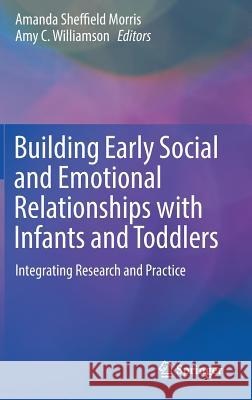Building Early Social and Emotional Relationships with Infants and Toddlers: Integrating Research and Practice » książka
topmenu
Building Early Social and Emotional Relationships with Infants and Toddlers: Integrating Research and Practice
ISBN-13: 9783030031091 / Angielski / Twarda / 2019 / 351 str.
Building Early Social and Emotional Relationships with Infants and Toddlers: Integrating Research and Practice
ISBN-13: 9783030031091 / Angielski / Twarda / 2019 / 351 str.
cena 655,41 zł
(netto: 624,20 VAT: 5%)
Najniższa cena z 30 dni: 650,86 zł
(netto: 624,20 VAT: 5%)
Najniższa cena z 30 dni: 650,86 zł
Termin realizacji zamówienia:
ok. 20 dni roboczych.
ok. 20 dni roboczych.
Darmowa dostawa!
Kategorie:
Kategorie BISAC:
Wydawca:
Springer
Język:
Angielski
ISBN-13:
9783030031091
Rok wydania:
2019
Wydanie:
2018
Ilość stron:
351
Waga:
0.69 kg
Wymiary:
23.39 x 15.6 x 2.24
Oprawa:
Twarda
Wolumenów:
01
Dodatkowe informacje:
Wydanie ilustrowane











